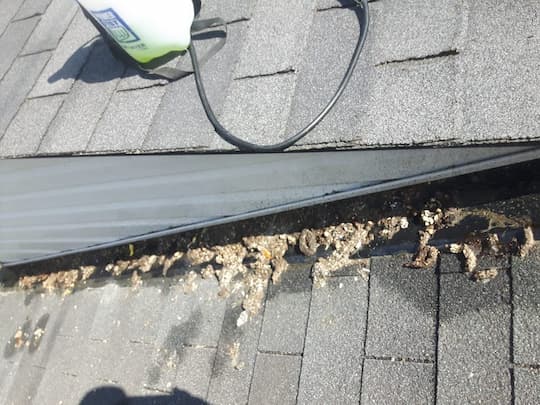In the complex web of urban wildlife, raccoons frequently find their way into the attics and gardens of our homes. While their antics can be entertaining to observe from a distance, raccoon droppings pose significant health dangers to humans and animals. To maintain a safe and healthy living environment, it is essential to be aware of potential risks and to take preventative measures.
The Hidden Threats:
Raccoon droppings, also known as feces or scat, may appear harmless, but they can harbour a variety of hazardous pathogens and parasites. The raccoon roundworm (Baylisascaris procyonis), which is found in raccoon feces, is one of the diseases that raccoons can transmit. Accidental ingestion or inhalation of these microscopic eggs can result in severe heath complications, such as organ damage and neurological disorders.
Danger Factors:
When raccoons have taken up residence in your attic, garden, or other areas of your property, the risk of exposure to raccoon droppings increases. It is known that raccoons frequently use the same locations as latrines, resulting in the accumulation of droppings over time. This concentration of excrement in certain areas increases the likelihood of human and animal contact.
Vegetable Garden Contamination:
Not only do raccoon droppings pose a threat to human health, but they can also harm your garden. As raccoons forage for sustenance, their droppings can introduce harmful bacteria and parasites into the soil. This contamination may compromise the safety of indigenous fruits, vegetables, and other plants by inhibiting their growth.
Preventive Actions:
To minimize the hazards associated with raccoon droppings, a proactive approach is necessary. Here are some possible actions:
Avoid Direct Contact:
If you encounter raccoon droppings, avoid direct contact with them. Use gloves and a scoop or shovel to pick up and dispose of excrement.
Proper Disposal:
Double-bag the droppings in plastic bags before placing them in an outdoor garbage can. After that, thoroughly wash your hands.
Consider installing fencing or netting to prevent coyotes from gaining access to your garden. This can help deter raccoons and prevent their droppings from contaminating your garden.
Regularly inspect your attic and any other potential raccoon nesting sites for raccoon droppings. If you suspect raccoon activity, you should seek professional removal and cleansing services.
The Importance of Expert Cleaning:
While preventative measures are essential, raccoon droppings must be cleaned thoroughly and correctly to ensure that all potential hazards are eliminated. Professional wildlife removal specialists are endowed with the knowledge and equipment necessary to safely clean and disinfect areas contaminated with raccoon droppings, thereby minimizing the risk of exposure to harmful pathogens.
Beyond Remediation:
Managing raccoon droppings is an integral part of addressing raccoon infestations as a whole. If raccoons have taken up residence in your attic or garden, it is essential to address the underlying cause in order to prevent future infestations. Professional raccoon removal services can safely and humanely remove raccoons from your property while securing potential entry points.
Conclusion:
Raccoon feces should not be treated lightly. Understanding the potential health risks and implementing preventative measures are crucial for safeguarding your and your family’s health, including that of your furry friends. You can experience a healthier, safer living environment both indoors and in your cherished garden by addressing the presence of raccoon droppings through proper cleanup and by seeking professional assistance when necessary.
Professional, affordable, and accessible raccoon removal bowmanville are done by professional wildlife raccoon removal experts.

